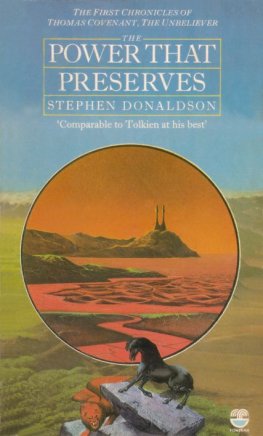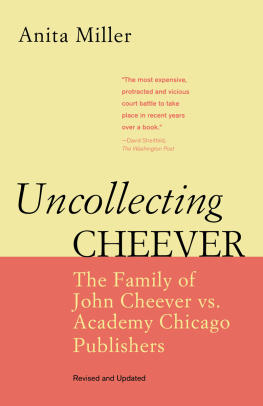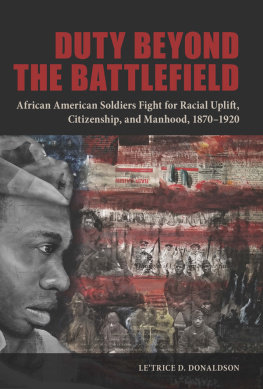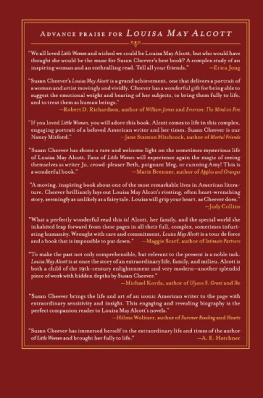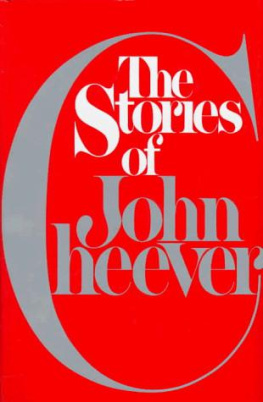John Cheever
A Biography
Scott Donaldson
This book is for Vivian
ALSO BY SCOTT DONALDSON
The Suburban Myth
Poet in America: Winfield Townley Scott
By Force of Will: The Life and Art of Ernest Hemingway
American Literature: Nineteenth and Early
Twentieth Centuries (with Ann Massa)
Fool for Love, F. Scott Fitzgerald
Editor, Jack Kerouac, On the Road
Editor, Critical Essays on F. Scott Fitzgeralds
The Great Gatsby
Editor, Conversations with John Cheever
FOREWORD
Wed made the date by postcard, but there must have been some mix-up and when I got off the ferry to Nantucket with the rest of the day-trippers, John Cheever was not there to meet me. Having come so far, I went out to the end of the island and knocked on the door of his room at the Wauwinet Inn. Cheever was all graciousness: invited me in, took me downstairs for a drink (his was iced tea), and talked about himself and his work for three hours as we watched the sailboats sport in the breeze. Almost immediatelydid he aim to shock?he told me about the hundred and fifty affairs hed had. Later, as he drove me back to the ferry, he spoke with feeling of his recently deceased brother. Some people have parents or children, he said. I had a brother. There seemed no appropriate response. For a long time I couldnt take him, he added, and then, quietly, I still cant.
It took several years of hard digging and harder thinking to begin to understand what those remarks signified. All biographers know theirs is an impossible task, for we really cannot understand one another. As Mark Twain commented, every persons real life is led in his head, and is known to none but himself. With a writer like Twain or Cheever, the long paper trail suggests the direction of some of that private cogitation. Patterns emerge, generalizations develop. But no one goes inside anothers mind. And that first and only meeting in Wauwinet, with its intermingling of confusion and revelation, disappointment and pleasure, warned me to expect the unexpected from John Cheever.
Eventually, I came to see his complicated and difficult life as a triumph. Hurt in childhood, he grew up a man divided against himself. A battle raged inside him between light and dark, celebration and sorrow, love and hate. The tension drove him close to self-destruction, and sometimes he lashed out at those around him. Yet with his victory over alcoholism, the mature Cheever at last rejected the dark and chose the light. Always a writers writer, toward the end he started getting the kind of public recognition his work had long deserved. Cheevers 180 stories, spanning from 1930 to 1980, tell us more about people in the American middle class during that half century than any other writers work has done or can do. Among his novels, The Wapshot Chronicle (1957) movingly captures the contrast between the often dispiriting present and the past, not perfect but recollected in tenderness, that we like to think we came from. Falconer (1977), situated in a prison, lands us smack in the middle of everything that is wrong with our civilization, yet ends in a celebration of the glory of love. And everything bears the stamp of Cheevers vivid imagination and rhetorical magic. He wrote, John Updike observed, as with a quill from the wing of an angel.
SCOTT DONALDSON
CONTENTS
PREHISTORY
The most remarkable thing about John Cheever was his capacity for invention. You could not be with him for fifteen minutes before he would look across the street or the restaurant, spy an interesting face, and the story would begin. William Maxwell, the writer who edited most of Cheevers stories for The New Yorker, once called him a story-making machine in the same sense that a rosebush is a machine for making roses. Cheever himself compared his talent to the possession of a pleasant baritone voice. He could not sing, much. But oh, could he tell stories.
The gift was there from the beginning and lasted all his life. At seven, he began to entertain his grammar school classmates with preposterous tales. At seventy, in the last year he lived, he finished his last book of fiction. I can tell a story, he observed. I can do little else.
It was, of course, more than enough. As he learned to shape and hone his talent, he became one of the centurys masters of the art of fiction. His yarn spinning also made him an enchanting companion. The truth was not in him, his friend Arthur Spear said of Cheever, with a reminiscent smile. Spear would not have changed him for the world.
As a practical matter, though, Cheevers capacity for inventionhis compulsion to inventsometimes led to difficulties. The man, like the writer, was afflicted by this touch of genius, and in his private life he could rarely be relied upon for the unadorned truth. This was particularly true regarding his family origins, which he tended to redecorate and improve upon when he could be brought to discuss them at all. For an anecdotal man he was surprisingly reticent about his background. Often it seemed that he was trying to muddy his past. Something back then must have been troubling him, friends thought. In a few of his early stories never collected in book form, he addressed the subject openly and frankly. Otherwise, most of his fiction romanticized his roots.
According to family legend, John Cheever was descended from Ezekiel Cheever, the schoolmaster at Boston Latin who was so revered that Cotton Mather preached his funeral sermon and called him Master Socrates. Ezekiel crossed the Atlantic in 1637 (the legend had him aboard the Arbella in 1630, along with John Winthrop and the Puritan founders of the Massachusetts Bay Colony). He taught first in New Haven, then at Ipswich and Charlestown before the call to Boston in 1671. A commanding figure, Ezekiel drilled the sons of ministers and magistrates in the Latin grammar he himself composed, maintained strict discipline, and punished any show of pretension. The Welfare of the Province was much upon his spirit, Samuel Sewall noted when Ezekiel died at ninety-four. He abominated periwigs.
Ezekiel Cheever was a great man, John Cheever loved that remark about periwigs, and so he claimed him for his ancestor. His father had done the same, supposedly searching through seven or eight generations in the genealogical records in Newburyport to trace his origins back to the redoubtable schoolmaster. He had seen the papers himself, John said, but thrown them all away. In fact, he was not directly descended from Ezekiel. The real founder of the family in America was Daniel Cheever, who emigrated from England in 1640. Daniel became prison-keeper in Cambridge, as did his son Israel, also in the direct line of descent. Daniel was a cousin of Ezekiels. Ezekiel was a cousin of John Cheevers great-great-great-great-great-great-grandfather.
If Cheever knew who his progenitors were, he did not acknowledge it. Once hed adopted Ezekiel he was loath to let him go, and developed a genuine pride of family based on him. As novelist Ralph Ellison observed in this connection, Some people are your relatives but others are your ancestors, and you choose the ones you want to have as ancestors. So, like his father and the fictional Leander Wapshot, John Cheever declared that there was nothing in his veins but the blood of shipmasters and schoolteachers. He told his children about their ancestor Ezekiel, and often mentioned him in interviews. He used the name in his fiction in two important instances. The founder of his Wapshot clan, modeled on Ezekiel Cheever down to his hatred for wigs, is called Ezekiel. The protagonist of his novel







